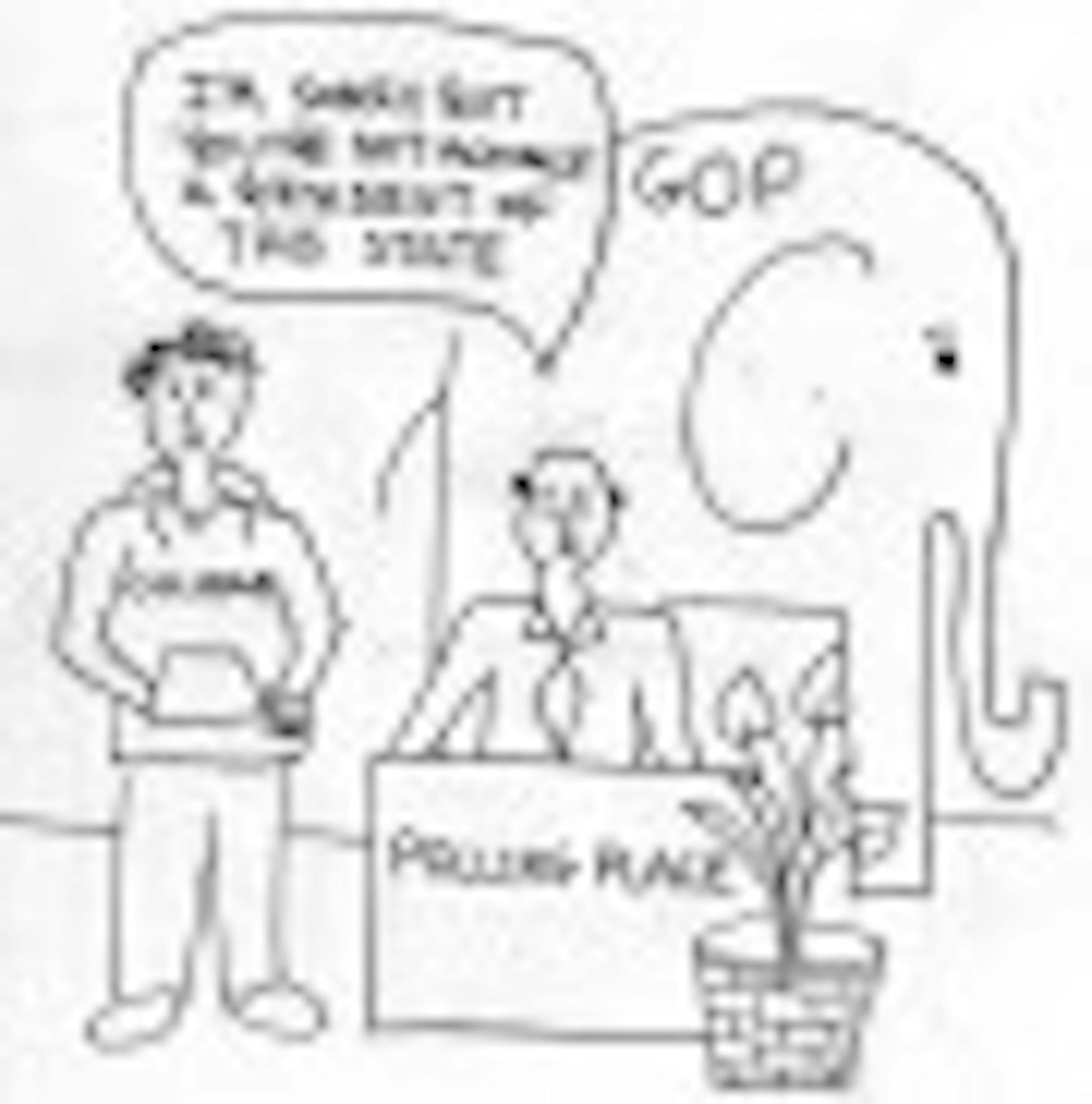Don't prevent students from voting
It seems like no matter where you look during election season, you're going to find some newscaster or political pundit worrying about low voter turnout. A solution for our democracy, then, would be to increase voter participation. And yet, republicans in the New Hampshire state legislature are trying to decrease voter participation among college students.According to the Washington Post, "New Hampshire House Republicans are pushing for new laws that would prohibit many college students from voting in the state-and effectively keep some from voting at all." Why, you may ask, are these politicians urging a decrease in participation among new voters? The New Hampshire Speaker of the House William O'Brien was quoted as saying that college students "vote too liberal[ly]" and that "they just vote with their feelings."
Now, aside from the outrage I feel as a politically active college student, it astounds me that Republicans in the New Hampshire House are condemning college students for voting with their hearts. After all, isn't that what everyone does? I would guess that most people aren't going to vote against their interests. No, most people, no matter how old they are, vote for issues that hit close to home-whether it be taxes, jobs, Medicare, what have you. The fact that college students vote with their feelings shouldn't be seen as an anomaly-especially because politicians themselves endorse such pathos.
In 2007, Newsweek published an article talking about the use of emotions in the 2008 election. In the piece, political psychologist Drew Western said that "In politics, the emotions that really sway voters are hate, hope and fear or anxiety." Western wasn't talking about college students; he was talking about voters in general. And it really doesn't matter which side is doing the fear mongering; what matters is that candidates do it and that all voters respond emotionally, regardless of how much life experience O'Brien thinks they lack. In effect, politicians in New Hampshire are condemning in college students what they hope for in other voters. Politicians want people to vote with their feelings; otherwise those same politicians wouldn't use emotional language to appeal to voters. However, politicians have a problem with such emotional voting if it seems to counter the politicians' own interests.
Unfortunately, New Hampshire isn't alone in its effort. The Washington Post reported that "The measures in New Hampshire are among dozens of voting-related bills being pushed by newly empowered Republican state lawmakers across the country." In Wisconsin, a photo-ID bill would severely limit the voting rights of college students. According to the Washington Post, "a photo-ID bill backed by the state's new GOP majority would not permit voters to use school-issued student cards. The measure would allow for [the use of] other IDs, such as passports, but opponents say thousands of students who do not have Wisconsin driver's licenses or passports would face unfair hurdles that would keep many of them from voting."
That means that if a student from Massachusetts were to attend the University of Wisconsin, he or she would be unable to vote in the Wisconsin election-any voting would have to be done through the student's home state. What kind of a country are we living in? What happened to the 15th Amendment? The 19th Amendment? I'm pretty sure that the Constitution guarantees the right to vote for all eligible American citizens. Denying that right to college students seems completely unconstitutional. Or do we need another amendment-one prohibiting the denial of the right to vote to anyone on the basis of age, so long as they are over 18?
And exactly what harm would using a school ID pose to the voting process if the point is, as the proponents of such a law say it is, to ensure fair voting practices? If the measure is designed to make sure the people who are voting are really who they say they are, then why wouldn't a school ID do just that? In reality, it is the very implicit discrimination in the ID law that would make voting unfair-counterintuitive to the supposed goals of the legislation.
In fact, charges alleging unconstitutionality have been made. If Wisconsin were to implement its photo-ID bill, the Washington Post reports that it would have to spend $2.7 million a year to avoid charges of a poll tax. The Washington Post also said that a "court ruling ... declared part of Georgia's ID law unconstitutional because people lacking IDs would have to pay for cards themselves-creating, in effect, a poll tax." According to the 24th Amendment, no citizen of the United States can be denied the right to vote on the basis of a poll tax. The proponents of the photo-ID bill are creating unfair voting conditions that are in direct violation of the Constitution.
No matter what the political reason for denying the right to vote may be, it comes down to the fact that preventing a demographic of eligible citizens from voting is just plain wrong. According to Newsweek, voter turnout in "2010 beat the previous record-low year of 2006, when only 9 percent of Democrats came out to choose their party's midterm standard bearers." With constant complaint about low voter turnout, it seems counterintuitive and wrong to withhold the vote from those in college.



Please note All comments are eligible for publication in The Justice.